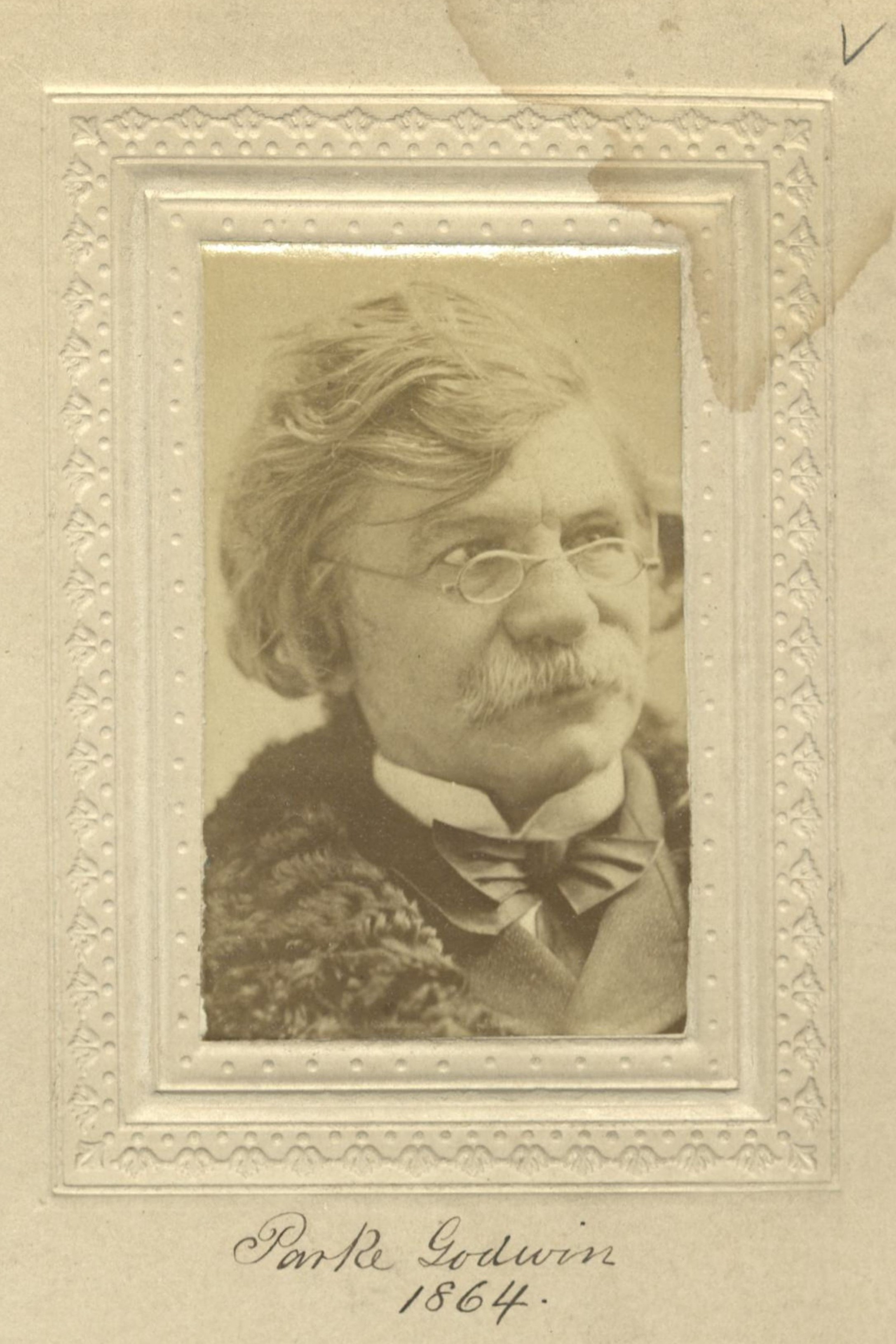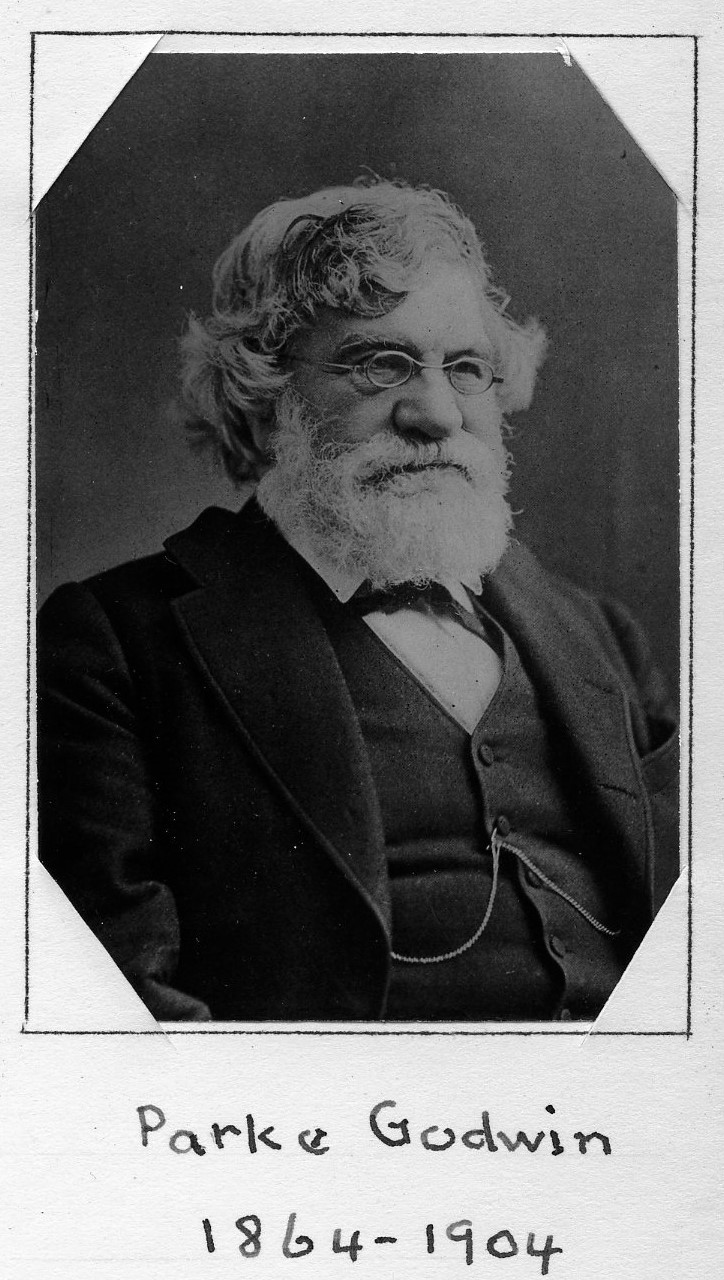Journalist
Centurion, 1864–1904
Born 28 February 1816 in Paterson, New Jersey
Died 7 January 1904 in New York (Manhattan), New York
Buried Roslyn Cemetery , Roslyn, New York
, Roslyn, New York
Proposed by George Bancroft and Edward A. Stansbury
Elected 12 November 1864 at age forty-eight
Archivist’s Note: Son-in-law of William Cullen Bryant; father of Bryant Godwin
Proposer of:
Seconder of:
Century Memorial
The name of Parke Godwin, though his striking figure was familiar in our rooms until a few weeks ago, carries the mind back to what seem to the present generation the boyhood days of the nation in literature and in public affairs. Born in 1816 and graduated from Princeton at an early age, he was admitted to the bar in this State when but twenty-one. He almost immediately took up journalism as his profession and was assistant to Mr. Bryant on The Evening Post at the time when that powerful organ of the Democratic party was in the first flush of its long conflict in support of free trade and was entering on its even more strenuous fight against slavery, in both of which Godwin bore a vigorous and stubborn part. He was an associate of that strange genius, John L. O’Sullivan, in the then famous and now almost forgotten Democratic Review. With [Charles Frederick] Briggs and Curtis he edited the Putnam’s Magazine, in which about all there was—and there was a good deal— of American literature was represented. He found time, incidentally, to edit The Harbinger, the brilliant and eccentric organ of the Brook Farm group, and to write on the doctrines of Charles Fourier in the somewhat quixotic attempt to disentangle the practicable from the impracticable in the teachings of that fascinating and noble student of ideals. He issued translations from the French and from the German, and contributed to that emancipation from purely English fashions and that inspiration from the Continental mind which was of so great importance in intellectual development of America. He was a reader of almost unlimited range, and his singularly retentive memory and unflagging zest gave him command of remarkable resources.
In politics Mr. Godwin was in the original sense democratic. He was a profound believer in the principle that the utmost possible freedom was the sole object of rational government. Naturally he plunged from the first into the Free Soil movement, was a delegate to its first convention, held at Syracuse, and never ceased his ardent advocacy until the triumph of the cause came with emancipation during the Civil War. Then he gladly severed his connection with the protectionist tendencies of the party with which he had been working and resumed his efforts for freedom of commerce. During all his long life Mr. Godwin added to his prolific activity as a writer unusual success as a public speaker. Here also his remarkable memory was aided by his sustained enthuisasm. Few of us who heard his address on his friend and associate, George William Curtis, can forget its simplicity, eloquence, vigor, and polish, and the entire ease with which it was delivered without manuscript or notes, and like addresses on Bryant, on Kossuth, on Edwin Booth, on Audubon, were not less remarkable. Mr. Godwin was eminently of a social nature and was for twoscore years constant in his frequentation of the Century.
Edward Cary
1904 Century Association Yearbook


